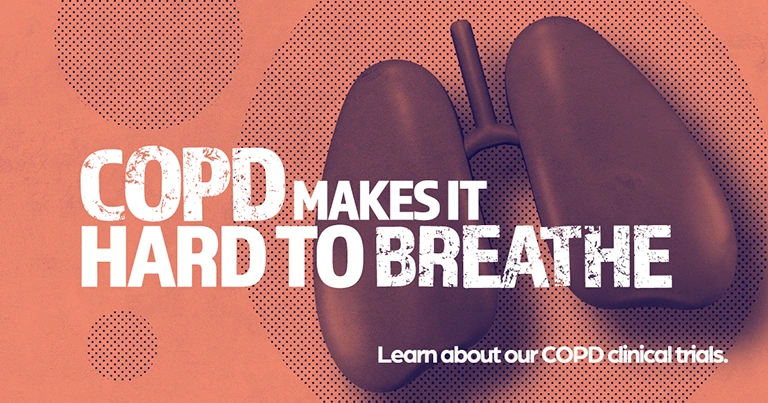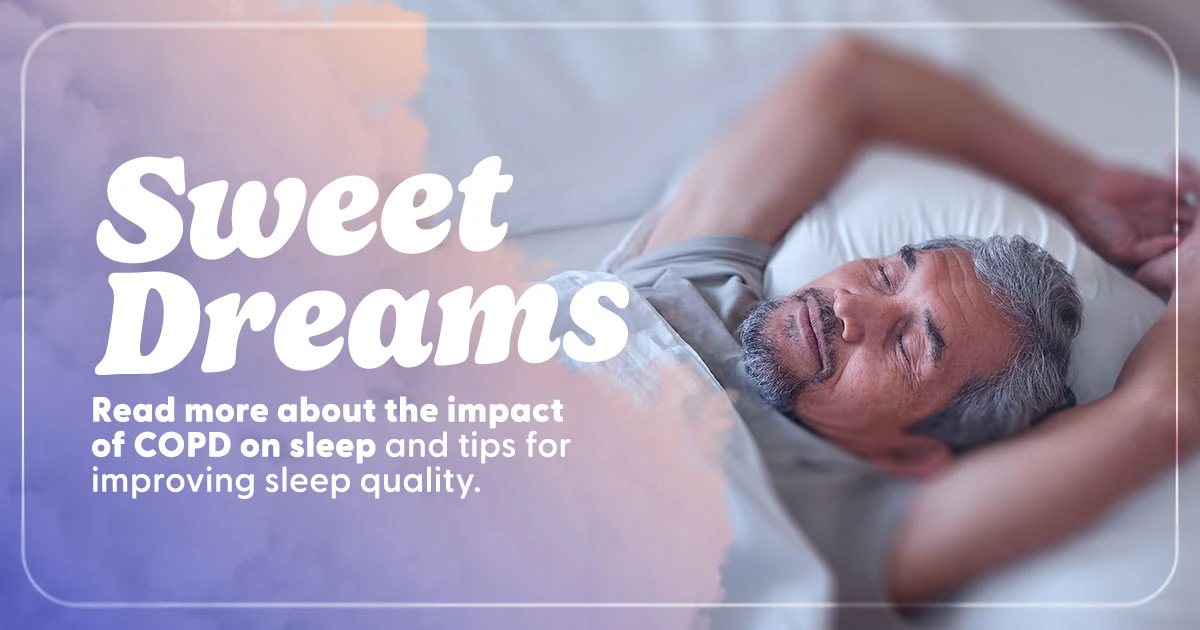Chronic Obstructive Pulmonary Disease (COPD) is a condition that affects millions of people worldwide, making it difficult to breathe and perform daily activities. One of the lesser-discussed aspects of living with COPD is the impact it can have on sleep. For many with COPD, getting a good night’s rest is challenging, which can lead to a cycle of fatigue and exacerbated symptoms. Understanding the connection between COPD and sleep, and learning practical tips to improve sleep quality, can significantly enhance overall health and well-being.
The Connection Between COPD and Sleep
COPD can lead to several sleep-related issues, including insomnia, frequent awakenings, and even sleep apnea. The reasons for these disruptions are multifaceted:
- Breathing Difficulties: COPD symptoms, such as shortness of breath, coughing, and wheezing, often worsen at night, making it harder to fall and stay asleep.
- Oxygen Levels: Individuals with COPD may experience drops in blood oxygen levels during sleep, leading to restless nights and frequent awakenings.
- Medication Side Effects: Some COPD medications, particularly bronchodilators and steroids, can cause insomnia or other sleep disturbances as side effects.
- Sleep Apnea: Many people with COPD also suffer from sleep apnea, a condition where breathing repeatedly stops and starts during sleep. This can lead to poor sleep quality and further complications.
Tips for Better Sleep with COPD
While COPD can make sleep more challenging, there are several strategies to help improve sleep quality:
- Maintain a Consistent Sleep Schedule: Going to bed and waking up at the same time each day can help regulate your body’s internal clock, making it easier to fall asleep and wake up refreshed.
- Create a Comfortable Sleep Environment: Keep your bedroom cool, quiet, and dark. Use a humidifier if dry air makes breathing more difficult and consider an adjustable bed that allows you to sleep in a slightly elevated position to ease breathing.
- Practice Good Sleep Hygiene: Avoid caffeine, nicotine, and heavy meals before bedtime, as these can interfere with sleep. Instead, opt for a light snack and a calming bedtime routine, such as reading or taking a warm bath.
- Manage COPD Symptoms: Work closely with your healthcare provider to manage COPD symptoms. This may include adjusting medications, using oxygen therapy, or following a tailored exercise program to improve lung function and reduce symptoms.
- Use Breathing Techniques: Practicing breathing exercises, such as pursed-lip breathing and diaphragmatic breathing, can help reduce breathlessness and anxiety, making it easier to relax and fall asleep.
- Monitor for Sleep Apnea: If you suspect you have sleep apnea, talk to your healthcare provider about getting tested. Continuous Positive Airway Pressure (CPAP) therapy or other treatments may be recommended to improve your breathing and sleep quality.
- Stay Active: Regular physical activity can help improve lung function, reduce stress, and promote better sleep. However, try to exercise earlier in the day to avoid being too energized before bedtime.
COPD Research Studies
If you’re struggling with sleep issues related to COPD and seeking new ways to improve your quality of life, consider exploring our enrolling COPD studies. These studies are designed to explore innovative treatments and interventions that may enhance sleep and overall well-being for those living with COPD. Your participation could contribute to groundbreaking research and provide you with access to cutting-edge therapies. To learn more about our studies and how you can get involved, contact us today.

Sleep is crucial for maintaining overall health, especially for those living with COPD. By understanding the relationship between COPD and sleep and implementing practical strategies, you can improve your sleep quality and, in turn, better manage your COPD symptoms. Don’t hesitate to explore new opportunities for better health through our research studies and consult with healthcare professionals to ensure you’re getting the rest you need to live a healthier and more comfortable life.



